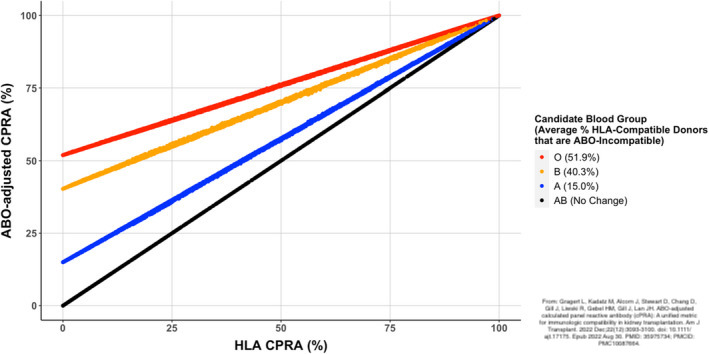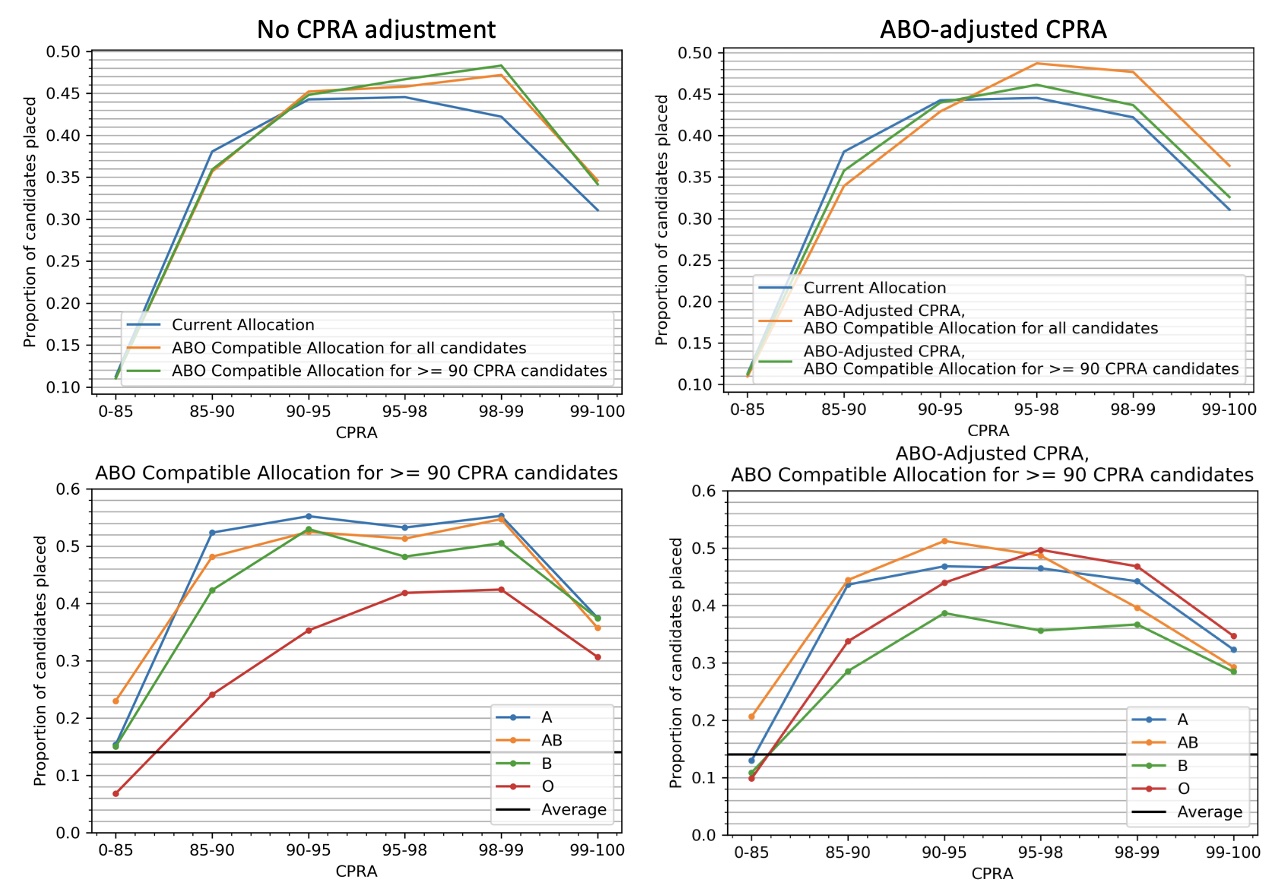ABO-compatible US kidney allocation with ABO-adjusted CPRA
Michal Mankowski1, Daniyar Akizhanov1, Sommer Gentry1, Dorry Segev1, Loren Gragert2.
1Surgery, NYU Langone, New York, NY, United States; 2Biomedical Informatics and Genomics, Tulane University School of Medicine, New Orleans, LA, United States
Introduction: Under the current US deceased donor kidney allocation policy, HLA-sensitized and thus severely biologically disadvantaged non-O blood type transplant candidates are systematically excluded from type O donor organ offers, despite the fact that O donors are universally blood type compatible. ABO-restricted allocation policy limits potential transplant opportunities even for very highly sensitized patients who have the smallest HLA-acceptable donor pools. In an era where >25% of kidneys recovered for transplant are discarded, revising allocation policy to enable disadvantaged patients to receive ABO-compatible kidney offers might reduce access disparities and decrease kidney nonuse. To ensure that ABO-compatible transplants are offered to the truly most difficult-to-match candidates, we suggest using a novel ABO-adjusted CPRA metric instead of conventional CPRA.
Methods: Using SRTR data, we modeled the current US deceased donor kidney allocation policy in SRTR’s new organ allocation simulator (OASim) along with allocation policies where: (1) all candidates or (2) only CPRR >= 90% candidates are eligible for ABO compatible donors. Policies (1) and (2) were evaluated with and without ABO-adjusted CPRA (Fig 1). We looked at the percentage of candidates transplanted in a one-year simulation (3/2021 - 3/2022) stratified by the CPRA and ABO groups.
Results: For O blood type candidates, the ABO-Adjusted CPRA policy for >= 90 CPRA candidates yields a transplant rate of 0.35 in the 99-100 CPRA category. This is higher than the 0.31 rate under the ABO Compatible Allocation for >= 90 CPRA candidates policy, and higher than the 0.32 rate under the Current Allocation policy. For B blood type candidates, the transplant rate under the ABO-Adjusted CPRA policy is 0.28 in the 99-100 CPRA category. This is higher than the 0.27 rate under the Current Allocation policy, but lower than for the ABO Compatible Allocation for >= 90 CPRA candidates policy without ABO adjustment (Fig 2).
Conclusion: Incorporating ABO-adjusted CPRA into the allocation policy might similarly increase transplants and equity for highly-sensitized and blood-type-disadvantaged candidates in the US.
Figure 1. ABO-adjusted CPRA


